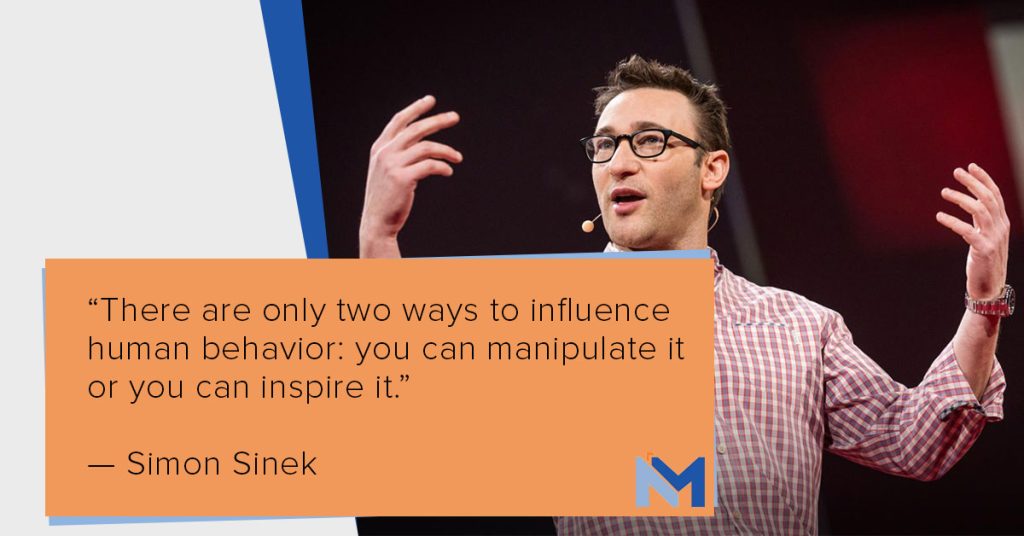One of the most frustrating experiences for any SEO is when a site with duplicate content or spammy backlinks outperforms a competitor who has done everything right. How does that happen?
John Mueller, a webmaster trends analyst at Google, recently shed some light on why Google will sometimes rank more poorly optimized websites.
According to Mueller:
For example, it might be that one site uses keyword stuffing in a really terrible way but actually their business is fantastic and people really love going there, they love finding it in search and we have lots of really good signals for that site.
So we might still show them at number one, even though we recognize they’re doing keyword stuffing.
Roger Montti, “John Mueller on Why Google Ranks Sites with Spammy Links“
What are the implications?
“Off-Line” SEO Factors
In a world increasingly immersed in the digital and virtual space, “off-line” might no longer mean what it once did. For example, the customer experience doesn’t start or end within your physical business space, but continues online. What I mean by “off-line” SEO factors, then, are elements of business that are traditionally considered so — such as customer service.
Because the frontier between online and offline is growing increasingly blurred, it’s natural that offline factors are becoming increasingly important to a business’ online presence.
Consider, for example:
Reviews
According to survey data collected by Moz, industry professionals find that 15% of ranking in the Google Local (Map) Pack and 6% of ranking organically below the local pack comes down to reviews.

Fundamentally, someone’s willingness to review your business comes from the quality of their experience. For bad reviews, a single particularly bad experience, even an outlier experience, can make all the difference and it can give people the sense that this review represents the average. Positive reviews can be more challenging to earn because a single experience rarely gives someone the impetus to review. Most positive reviews come from customers who’ve had long-term relationships with you.
The more customers you have, the less time per customer you’ll be able to allot, at least personally. That’s why it’s important to systematize the best practices and train your staff to extend the same experience to all customers that you would personally.
Marketing automation can help scale your review acquisition efforts. It can do this not just by asking for more reviews more frequently, but also by extending the customer experience beyond what’s possible when the customer is strictly with you. Still, fundamentally, most of the factors that compel customers to leave reviews happen during their time with you and your staff.
Community Service
Grassroots marketing indirectly feeds into your SEO by helping to grow your brand and reputation outside the narrow scope of your digital presence. In fact, grassroots marketing can be leveraged to improve your digital presence in the overall sense, not just SEO. For example, you’re more likely to get excellent reviews if you perform community service.
Community service can also be leveraged by getting coverage on local news sources, including online, in print, and on screen. This plays into expert publishing, which we’ll discuss in further detail below.
Ideas for community service include programs that offer free or reduced cost services to students or other groups in need. Many dentists offer free services to the homeless, military veterans, and others. You can also offer scholarships and aid in other ways, such as school books and other resources that are still difficult to attain for many families.
The motivations for these programs aren’t just business-related, they speak to the values of the dentist and business owner. This is, in large part, why community service is such a powerful tool in a business owner’s kit.
People don’t buy what you sell, they buy why you sell it.
Expert Publishing
Dr. Timothy Kosinski, in Michigan, is an excellent example of how content marketing transcends the content that your agency is producing. Dr. Kosinski has been interviewed by Glidewell Laboratories, and regularly publishes for Chairside Magazine. He has also published elsewhere, including theprofitabledentist.com and Dentistry Today. It goes without saying that Dr. Kosinski is a highly successful implant dentist.
Publishing is a fantastic method of building your brand and, by extension, empowering your SEO. “Unlinked” mentions of your brand carry weight in Google’s algorithm because it helps to establish you, plu your online assets like your website, as an authority. Furthermore, these “unlinked” mentions can easily be turned into backlinks. Publishing has broader benefits than simply SEO, but your search presence will increase with the growth of your brand.
Another example of brand-building comes from Dr. Sara Jockin in Florida. Dr. Jockin actively lectures on implant and restorative dentistry, which defines her authority with respect to her peers. Similarly, Dr. Christopher Henninger in San Diego is a frequent guest on The Wellness Hour. Google can understand that relative authority to one degree or another, and its ability to do so is only getting better.
These are all excellent strategies for building authority and a brand presence with benefits not only for SEO, but for your business in general. And they’re things that are only possible if you’re willing to leverage the expert knowledge only you have.
Special Events & Offers
Your overall pricing programs also affect your SEO, especially if these programs are actively communicated to your SEO team.
Special offers make for great title tags and meta descriptions, which are the elements displayed on your Google listings. For example:

While “straight teeth up to 2X faster” is compelling, so is “Invisalign $500 off.” Even without a strict offer, if your practice offers CareCredit, then “interest-free financing” can also be a compelling way of distinguishing your listing from the rest.
Your SEO can both help you better advertise your pricing programs and can benefit from these offers by achieving higher click-through and engagement rates.
Bottom Line: Your Brand and Reputation Drive Your Online Presence
Google is interested in serving the best local businesses to local searchers, and being a good local business has nothing to do with which keywords you’re targeting. It has everything to do with the relationships being built with your customers, as well as other elements that factor into the authority of the overall brand.
The fact that brand is a big part of the competitive battle to rank doesn’t make your SEO team useless. In fact, the opposite is true. It makes the task of the SEO team more complicated, but also more fulfilling.
SEO is not just about building awareness of the brand, the company, and the services. A big part of SEO is also about controlling the search experience, which involves making sure the right pages rank for the right queries and that, once the user clicks through, they can accomplish whatever they intended when they made the search.
Brand building is a bigger-picture effort that should exist along multiple channels, including SEO, pay per click, and in the office itself. Furthermore, as the divide between online and offline continues to become fuzzier, we can’t treat the two as separate and independent. In reality, they’re interconnected and build on each other.

